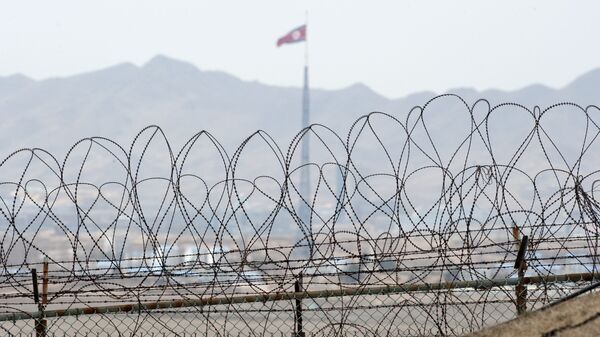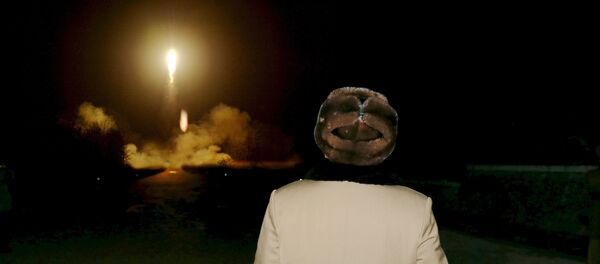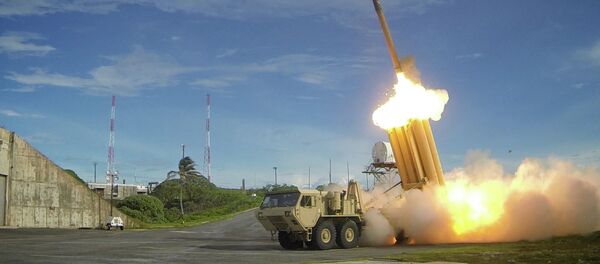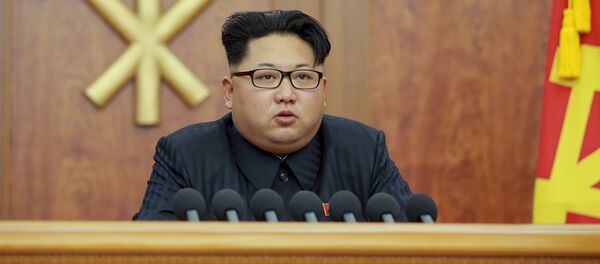Radio Sputnik’s Loud & Clear host Brian Becker speaks with Christine Ahn, co-founder of the Korea Policy Institute and Executive Director of Women Cross DMZ, about the roots of the long-lasting conflict between the two Koreas, and the deep US involvement in the ongoing standoff.
The DPRK, as an independent state, emerged following a bloody civil war with South Korea between 1950-53. At the time, North Korea was subjected to a “vicious bombing campaign” by the US, she explained.
“Because that war, that ended in 1953, ended only in ceasefire, in which the military leaders of the US, China and North Korea came together to sign this agreement, they promised to come back to talks within three months. And that never happened. Basically, the state of war still exists.”
In this regard, claims by US President Barack Obama that the DPRK is a “wasteland,” on par with assertions from US Vice President Joe Biden that America is ready to fight in North Korea, are “unbelievable,” she said.
“More bombs were dropped on North Korea than on any other country in the Asian theater during World War II,” she said, adding that the US actively took part in bombing the country, and some 80 percent of its infrastructure was demolished by the end of the war. “Some historians say that the US committed genocide [in North Korea], when they bombed water dams that unleashed floods across the plains and wiped away harvests.”
Aside from war hardships, North Korea has lived under harsh sanctions for decades, surviving cataclysms such as flooding and a drought that caused a major famine in the 1990s which reportedly took up to 600,000 lives, following the collapse of the Warsaw Pact in 1991.
“North Korea was in the critical moment and, despite appealing to international community for aid, it took the US two years to deliver the aid.”
That Pyongyang is being heavily sanctioned for its nuclear weapons program highlights the hypocrisy of the West, and the United States in particular, Ahn explained, as Washington has recently delivered a THAAD missile system to South Korea.
Washington undermined those peace efforts, however, during the administration of President George W. Bush, who called North Korea one of the three members of his self-described “axis of evil.” The US continues to maintain instability and tension by pushing its own agenda in the region.
“In rising tension between the US and China, Korea again is falling victim,” she asserted. “THAAD systems, which the US is saying is being deployed in the Korean Peninsula in protection against North Korean missiles, is actually not the truth. [THAAD] is there as a projecting power against China.”
Washington, according to Ahn, “feels that they want to maintain their hegemony in the region and that’s why they are holding 35,000 troops on the Korean Peninsula.”
“The only communication that takes place [on the Korean peninsula] is the one of war,” she said.





